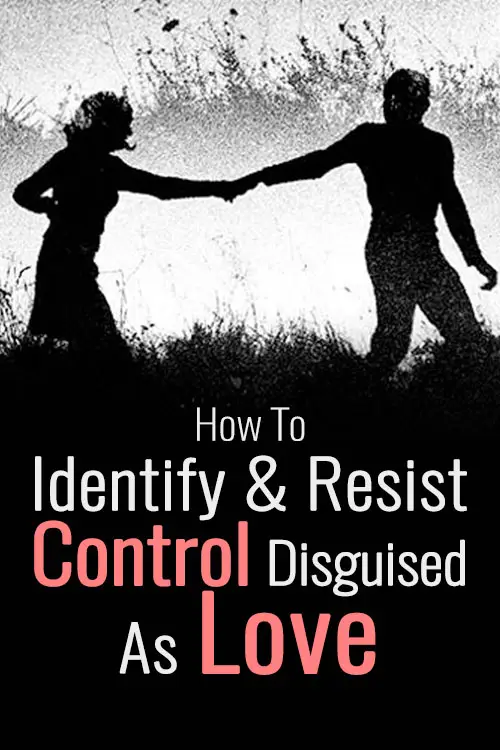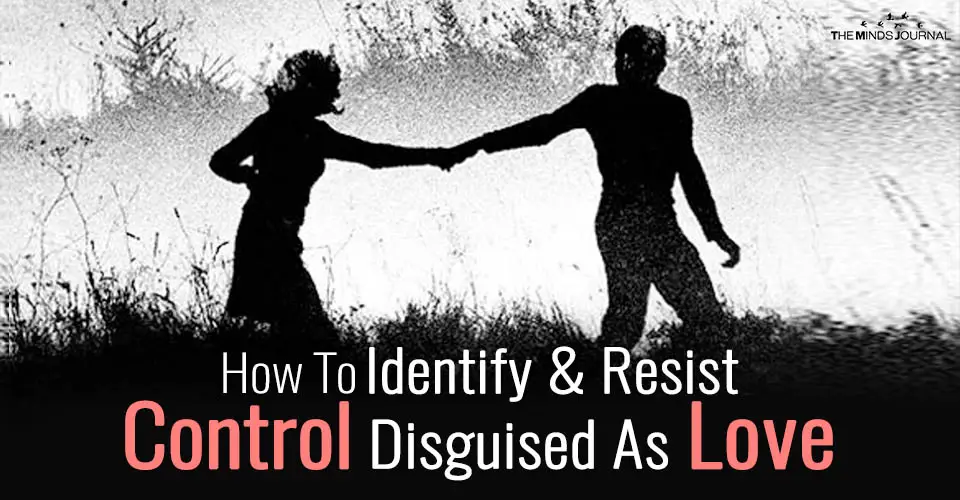Control and manipulation are sometimes concealed as love and care. However, if you are observant and notice them very carefully, you will be able to identify and resist control disguised as love.
Not Falling for That! Resisting Control Disguised as Love
Written with Laura Marjorie Miller
Abusive and controlling partners often use “loving” acts to manipulate their victims. When intimidation, isolation, and even physical abuse no longer seem to be working, the abuser pulls out the wedding albums or acts charming and contrite to win the abused partner back. One former abuser, for instance, described how he regularly sent flower arrangements to his girlfriend’s workplace so her co-workers would tell her how lucky she was to be with him.
Some people call these acts of love “the honeymoon” or “making-up” phase of a “cycle of violence.” We prefer to think of these as bait leading to a trap.
Occasional acts of kindness are a grooming strategy to retain control and make a partner stay in the relationship. An abuser may intersperse loving acts with angry outbursts, sexual coercion, and manipulation, producing a kind of emotional whiplash in his partner.
The victim may welcome the candy, kisses, and compliments, believing these are signs that the abusive partner is changing. However, the kinder periods are most likely ploys to make the abused partner stay. Abusers choose to behave kindly when they believe that expressing “love” is the best strategy for retaining control. These periods of kindness work to keep the victim hopeful and coming back for more.
Have you ever been in a controlling relationship? Read 10 Warning Signs That He’s Going To Be Controlling
Laura says that she learned to stop “falling for” her former partner’s acts of “love” by thinking about them as bait. She saw him as a forest trapper, setting out an alluring object that was hard to resist, so he could keep her where he wanted her. She began to identify his overtly negative words and actions as “poison,” and the “loving” acts as bait. This made it easier to dismiss his affectionate attempts at reconciliation—she knew their true intention: to keep her trapped.
“I realized that no matter what the lure looked like, it was either bait or poison: bait if it was sweet and engaging, or poison if it was him lashing out in an attempt to lodge some self-doubt in my mind as he had often done before. Previously, he could create nostalgia about the time we were together and I would decide to take him back. After I considered it bait, these acts lost their power.”
Unless people have had experience with a coercively controlling person, they may not understand that communication can function this way. They will assume that the abuser’s “loving” acts or words are like anyone else’s attempts to convey genuine affection. But “sweet,” coercive control communication is sugary poison. Picture a hunter placing the meat in a trap, or an angler using a worm to reel in the catch.
Thinking about poison and bait can set free people in coercive control relationships. Be cautious, like an animal in the forest. You do not need to eat from that trap. Self-preservation = self-love=surviving to someday thrive again.
Seeing things as they actually are, and fighting it can help you build a better life for yourself. Most importantly, it will help you understand that control doesn’t mean love.
If you want to know more about how you can resist control disguised as love, check out this video below:
Written By Lisa Aronson Fontes Ph.D.
Originally Appeared In Psychology Today









Leave a Reply
You must be logged in to post a comment.